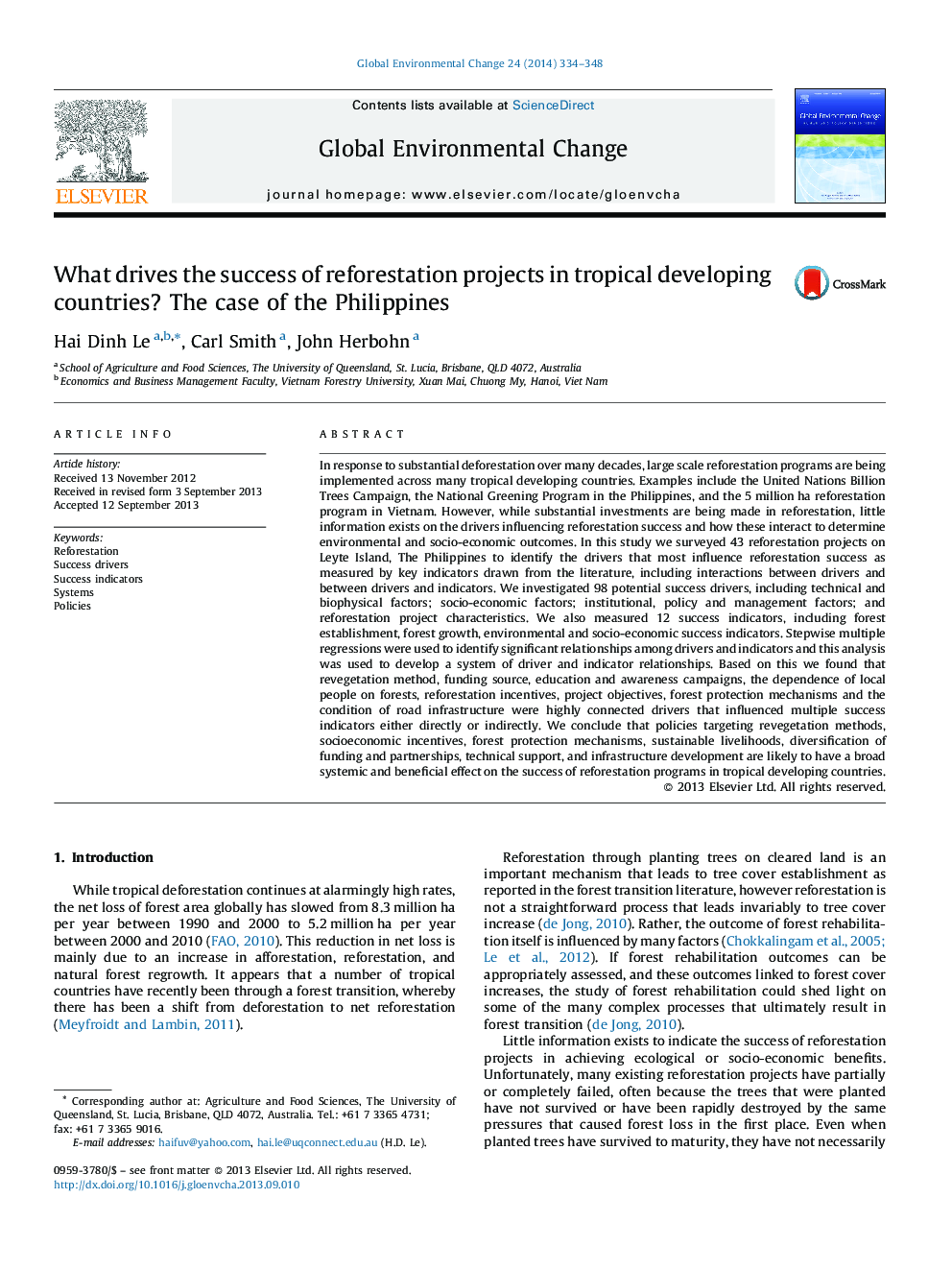| Article ID | Journal | Published Year | Pages | File Type |
|---|---|---|---|---|
| 7470728 | Global Environmental Change | 2014 | 15 Pages |
Abstract
In response to substantial deforestation over many decades, large scale reforestation programs are being implemented across many tropical developing countries. Examples include the United Nations Billion Trees Campaign, the National Greening Program in the Philippines, and the 5 million ha reforestation program in Vietnam. However, while substantial investments are being made in reforestation, little information exists on the drivers influencing reforestation success and how these interact to determine environmental and socio-economic outcomes. In this study we surveyed 43 reforestation projects on Leyte Island, The Philippines to identify the drivers that most influence reforestation success as measured by key indicators drawn from the literature, including interactions between drivers and between drivers and indicators. We investigated 98 potential success drivers, including technical and biophysical factors; socio-economic factors; institutional, policy and management factors; and reforestation project characteristics. We also measured 12 success indicators, including forest establishment, forest growth, environmental and socio-economic success indicators. Stepwise multiple regressions were used to identify significant relationships among drivers and indicators and this analysis was used to develop a system of driver and indicator relationships. Based on this we found that revegetation method, funding source, education and awareness campaigns, the dependence of local people on forests, reforestation incentives, project objectives, forest protection mechanisms and the condition of road infrastructure were highly connected drivers that influenced multiple success indicators either directly or indirectly. We conclude that policies targeting revegetation methods, socioeconomic incentives, forest protection mechanisms, sustainable livelihoods, diversification of funding and partnerships, technical support, and infrastructure development are likely to have a broad systemic and beneficial effect on the success of reforestation programs in tropical developing countries.
Keywords
Related Topics
Life Sciences
Environmental Science
Environmental Science (General)
Authors
Hai Dinh Le, Carl Smith, John Herbohn,
